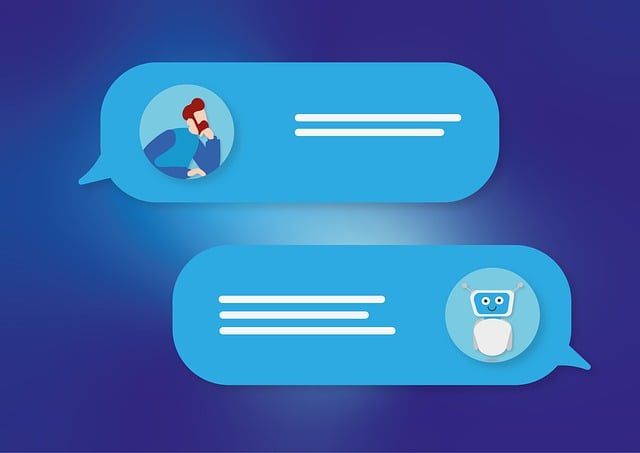AI chatbots online have transformed human-computer interaction, offering 24/7 assistance across various sectors with tasks ranging from answering queries to scheduling appointments. They leverage natural language processing (NLP) and machine learning to provide personalized recommendations and generate human-like responses. While scripted AI chatbots excel in handling frequent customer support inquiries efficiently, they face challenges understanding context, sarcasm, and emotional cues, impacting accuracy and personalization.
“Discover the transformative power of AI chatbots online in our comprehensive guide. We demystify these digital assistants by breaking down their core components, including an in-depth look at scripted chatbots. Learn how these sophisticated tools utilize pre-written scripts to engage users naturally, offering a seamless human-like conversation experience. Explore the vast benefits and applications across industries, from customer service to education. Uncover potential challenges and limitations while gaining insights into strategies for successful implementation.”
- Understanding AI Chatbots Online
- How Scripted Chatbots Work
- Benefits and Applications of Scripted Chatbots
- Challenges and Limitations of Scripted Chatbots
Understanding AI Chatbots Online

AI chatbots online have become increasingly sophisticated, transforming the way we interact with technology. These virtual assistants leverage artificial intelligence and natural language processing to understand and respond to human queries in real time. They can engage in complex conversations, provide personalized recommendations, and perform a wide range of tasks, from answering questions to scheduling appointments.
Understanding AI chatbots online involves grasping their ability to learn and adapt based on user interactions. These chatbots use machine learning algorithms to analyze vast amounts of data, enabling them to improve over time. They can contextually interpret user inputs, recognize intent, and generate human-like responses, making the user experience seamless and intuitive. This technology is revolutionizing customer service, marketing, and personal assistance, offering 24/7 accessibility and efficiency in various sectors.
How Scripted Chatbots Work

Scripted chatbots operate by following pre-written scripts or conversational flows designed by developers. These bots are programmed to respond to user inputs with specific, predefined text or actions. Under the hood, when a user sends a message to an AI chatbot online, advanced natural language processing (NLP) algorithms analyze the input and match it against patterns in the script. This process allows the chatbot to select the most appropriate response from its database of possible replies.
The effectiveness of scripted chatbots lies in their ability to provide consistent, context-relevant answers. Developers can craft responses that cater to various user queries, ensuring a seamless interaction experience. Moreover, these bots are often integrated with knowledge bases or external data sources, enabling them to offer accurate information on specific topics. This makes scripted chatbots ideal for tasks like customer support, where they can handle frequent inquiries efficiently and accurately.
Benefits and Applications of Scripted Chatbots

Scripted chatbots offer a multitude of benefits for businesses and users alike, especially in today’s digital landscape where quick and efficient communication is paramount. One of their key advantages is 24/7 availability; these AI chatbots online can handle customer inquiries at any time, ensuring round-the-clock support without the need for human agents to be on duty every hour of the day or night. They are capable of processing a high volume of simple to moderately complex queries, reducing response times significantly and improving user satisfaction.
The applications of scripted chatbots are vast and varied. From handling basic customer service tasks like providing product information, troubleshooting common issues, and scheduling appointments, to managing bookings, delivering personalized recommendations, and even facilitating sales – these bots can handle a wide range of interactions naturally and effectively. They can also collect valuable user data, which businesses can leverage for analytics, marketing campaigns, and improving their services over time.
Challenges and Limitations of Scripted Chatbots

Despite their many advantages, AI chatbots online also face several challenges and limitations. One major hurdle is context understanding; these bots often struggle to comprehend nuanced language, sarcasm, or emotional cues present in human conversations. This can lead to inaccurate responses or misinterpretations, especially when users express complex or ambiguous queries.
Another significant limitation is their reliance on pre-scripted responses and training data. Scripted chatbots are designed based on predetermined scenarios and answers, which may not cover all possible user interactions. As a result, they might provide rigid and less personalized experiences, failing to adapt to unique user needs and preferences. This can impact user satisfaction and engagement over time.
AI chatbots online have evolved significantly, with scripted chatbots offering a structured yet adaptable approach. By leveraging pre-written scripts, these chatbots enhance user experiences across various sectors, from customer service to entertainment. While they face challenges like limited context awareness and the need for continuous script updates, ongoing advancements in natural language processing promise to overcome these limitations. As AI chatbots continue to mature, their potential to revolutionize communication and interaction remains vast, shaping a future where human-machine interactions are seamless and efficient.
